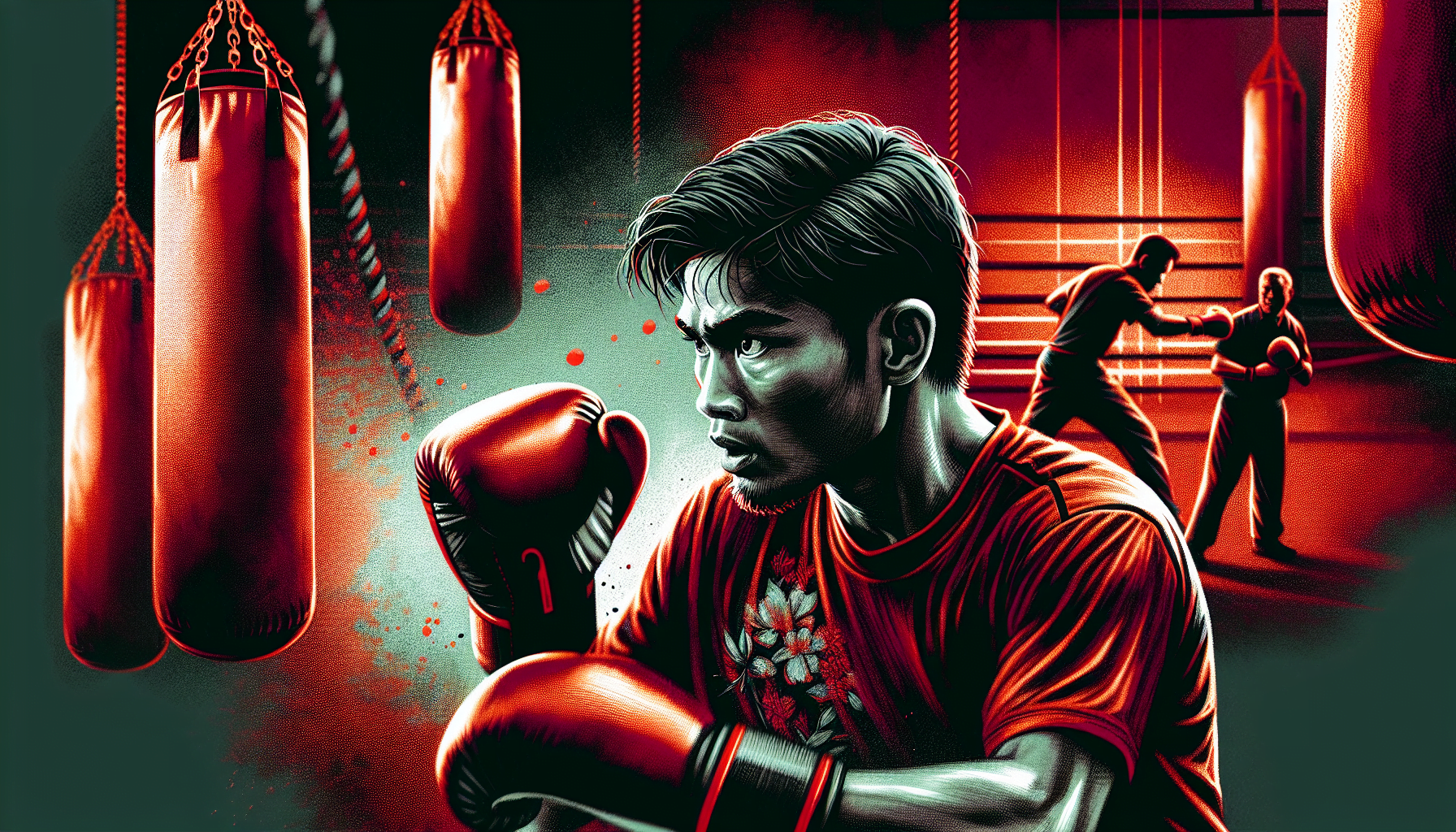Developing intuition and reflexes in boxing is about honing your body’s split-second decision-making. Imagine stepping into the ring, gloves up, heart racing—the moment your opponent feints, your body reacts before your mind catches up. That’s the boxing instinct you’re after.
It’s the difference between being a good fighter and a great one. As someone who’s danced around the canvas, dodging jabs and weaving through uppercuts, I’ve felt the sting of hesitation. But I’ve also savored the thrill of an instinctual dodge.
Let’s lace up and dive into the techniques that will sharpen your senses to razor-edge precision, transforming every bout into a testament of your intuitive prowess.

Sharpening Your Senses

Cultivating the Fighter’s Sixth Sense
In boxing, instinct is your silent guardian. It’s the whisper that tells you when to duck, the nudge that urges you to weave. To grow your boxing instinct, immerse yourself in the ring. Experience is the master teacher here. The more you spar, the sharper your intuition becomes. You learn to read subtle cues, like the twitch of a shoulder that precedes a hook. It’s a language without words, where every feint and shuffle speaks volumes.
The Art of Prediction in the Squared Circle
Predicting an opponent’s moves is like a chess game played at lightning speed. You must think several moves ahead. Watch footage of seasoned fighters. Notice their patterns and how they break them. In your own fights, pay attention to rhythms and disruptions. A sudden change in pace can signal an incoming attack. Train your mind to anticipate, not just react. This foresight is a cornerstone of boxing instinct.
Mastering the Mental Game
Focus and concentration are your allies in the heat of battle. Techniques like visualization can fortify these skills. Picture your bouts, imagine countering every punch. This mental rehearsal primes your brain for the real thing. Meditation also hones your ability to remain calm. A tranquil mind reacts faster than one clouded by chaos. Practice breathing exercises to center yourself amidst the storm of fists.
Quick Decisions Under Fire
The ability to make split-second decisions separates the good from the great. Drills that simulate high-pressure situations are invaluable. They teach you to think on your feet. Pair up with a partner for rapid-fire exchanges. Learn to trust your gut when there’s no time to think. Your instincts will guide you to the right move when every second counts.
Reflexes Like Lightning
Reflexes are the physical manifestation of your boxing instinct. Sharpen them with reaction drills. Use tools like the double-end bag to improve your timing and speed. The unpredictability of the rebound mimics an opponent’s movements. It trains you to respond with precision and agility.
To you, the boxing trainee or enthusiast, understand that developing your boxing instinct is a journey. It’s a blend of mental fortitude and physical prowess. Keep stepping into the ring, keep analyzing, and keep your senses keen. Your instincts will grow, and with them, your mastery of the sweet science.
Cultivating Natural Instincts in Boxing

Unlocking Your Inner Fighter: The Role of Instincts
In boxing, instincts can make or break your success in the ring. You’ve felt it-that gut reaction, the split-second decision that could dodge a knockout punch. It’s about honing that raw, intuitive sense that guides your movements. To grow your boxing instinct, you must immerse yourself in the rhythm of the sport. It’s like learning a language; the more you practice, the more fluent you become.
Muscle Memory Mastery: Building Reflexes Through Repetition
Muscle memory is your silent partner in the ring. It’s the result of repeated, precise practice. When you train, you’re not just strengthening your body; you’re etching each movement into your neural pathways. Picture a pianist-each note learned until the music flows without thought. For you, it’s the jab, the cross, the footwork. Drills are your scales, and sparring is your symphony. To enhance reaction time, drill combinations until they’re second nature. Shadowboxing in front of a mirror helps you correct form and sharpen anticipation.
Flow State Fighting: Achieving Zen in the Ring
Imagine being so immersed in the fight that everything else fades away. This is the flow state, where instinct and action fuse. Achieving this requires a calm mind and a present focus. Meditation can be your tool for this. Spend time each day sitting quietly, focusing on your breath, and visualizing your movements in the ring. This mental rehearsal primes your brain, making real-time decisions quicker and more accurate.
Visualization: Seeing the Win Before It Happens
Visualization isn’t just daydreaming; it’s a strategic rehearsal. Close your eyes. Picture your opponent, the ring, the crowd. Now, see yourself moving, reacting, dominating. Feel each punch, each block, each triumphant bell. This mental imagery reinforces your muscle memory and sharpens your instincts. It’s about creating a blueprint for success that your body can follow when the pressure is on.
Meditative Practices: The Mind-Body Connection
The mind and body are a team, and meditation strengthens their bond. It’s not just sitting in silence; it’s active engagement with your inner self. Through meditation, you can train your mind to remain calm under stress, to be resilient in the face of adversity. It’s about cultivating a mental toughness that translates into instinctual confidence in the ring. Practice mindfulness daily, and watch as your reactions become more intuitive, your movements more fluid.






